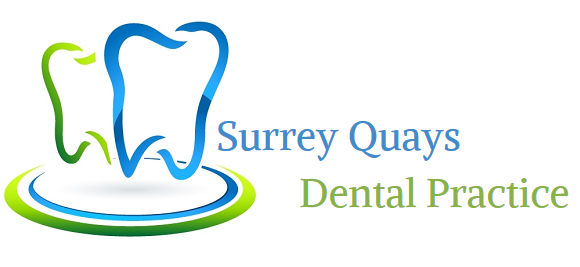If you have an out of hours emergency, kindly call NHS 111 to access the out of hours emergency service.
There are different types of emergencies, from chipped teeth or severe dull ache, to an agonizing toothache and even acute facial swelling. Any life threatening problems, for example; difficulty in breathing or profound bleeding, should be dealt with at your local A & E, immediately
Please also see the "Care After Surgery" leaflet which was handed to you after your treatment
For the first 24 hours after your dental surgery you should avoid:
- any food or drinks that are very hot or cold
- mouthwashes
- smoking
- alcohol
as these can all cause post-operative bleeding (hot drinks are allowed as long as they have been allowed to cool to warm).
Avoid any food that is sharp, scratchy or sticky (e.g. toffee, chewing gum).A soft diet for the first 48 hours following your surgery is advised.
Local Anaesthetic
During your surgery today you may have been given an injection of local anaesthetic in the gum near where your tooth has been extracted. This helps to minimise any pain after the operation. The local anaesthetic used causes temporary numbness to areas inside your mouth. Be careful not to chew the insides of your cheeks or accidentally bite your tongue. The local anaesthetic will gradually wear off over the next few hours but you may experience a slight loss of sensation on patches of skin around your chin for a short period after the surgery.
Bleeding
Bleeding should stop soon after your surgery but you may find the sockets ooze slightly for 24 hours. Your discharging nurse will give you a small supply of dental packs to take home. If you experience any bleeding at home, moisten with tap water and wring out, a dental pack to allow it to become more flexible. If you have had more than one tooth extracted, rinse your mouth with water so you can see which socket is bleeding. Apply the pack over the socket that is bleeding and bite firmly (but not too hard as this may cause discomfort) for 20 minutes. If the bleeding continues you may need to reposition the pack. If after 20 minutes the bleeding continues then please contact your general dental practitioner or contact one of the telephone numbers on page 5.
If you don’t have one of the dental packs to hand, then use a clean handkerchief rolled up so that one corner is made into a hard pad twice the size of the bleeding socket.
Once the bleeding has stopped a blood clot will form over the socket. It is important to try not to knock that blood clot away or you may cause the socket to start bleeding again.
Pain
During the week following your surgery you may experience some discomfort, swelling and bruising around your cheeks, jaw line and neck. Due to inflammation around the joint your jaw may also become stiff. With time and regular use of painkillers, this should subside. Alternative therapies such as a warm wheat pack placed around the neck or a bag of frozen peas wrapped in a tea towel and applied to the jaw may help.
Stiches
If any stitches (sutures) have been used to close the sockets, There are two types of stitches- The standard stitches type needs to be removed after 7-10 days by a staff member. You are told otherwise by staff which one you have place and will be given the necessary follow-up appointment.The dissolvable stitches type does not need to be remove as they will automatically disappear. The stitches will dissolve in approx 10 days - 2 weeks. Do not fiddle with your stitches using your fingers or tongue. It is advisable to continue with salt water mouthwashes until your stitches have dissolved and your mouth looks and feels healed
Following your tooth extraction, you may be left with a small pouch/hole in the gum where your tooth was. This hole will gradually close up from the inside out over the next
3 - 4 months. If food particles become lodged in the hole then swill your mouth with mouthwash or use gentle brushing to free them.
Rinsing
Mouthwashes should be started 24 hours after your surgery. Mix a level teaspoon of salt into a cup of boiled, hot (but not scalding) water. Hold the salt water in the mouth for one minute and gently swish the solution around and then spit
out. Repeat mouthwashes 3-4 times a day and after you have eaten to make sure your mouth remains clean. Do not use any other mouthwashes after the operation unless instructed to by the ward nurses or oral surgery doctors. Tooth brushing should continue as normal.
If you notice an unpleasant taste in your mouth or an unusual discharge this may mean that you have an infection. We recommend that you make an appointment to visit your dentist.
Signs to look out for
If over the next 24hours you experience any of the following:
- new fresh or increased bleeding
- pain that is not controlled with painkillers
- abnormal swelling
Brushing
Use your tooth brush as normal but take care around the extraction site. It is important that you keep your mouth as clean as possible to allow the area to heal properly.
Work
Physical exertion is not advised until the following day at the earliest. If in doubt ask the Dental Surgeon for advice.
Eating and Drinking
Do not eat until the anaesthetic has fully worn off and then only eat soft foods. Avoid chewing in the area of the extraction for at least 3 days. Drinks such as warm tea are fine, but drink them straight back and do not swill them around the socket. Do not consume alcoholic drinks, or smoke, for at least the next 24 hours.
Please contact the practice during working hours on 02072317912 or kindly call the NHS 111 for out of hours services
